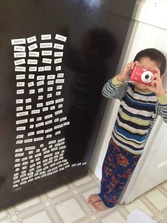Peg Tyre, Atlantic Magazine, October 2012
"For years, nothing seemed capable of turning around New Dorp High School’s dismal performance—not firing bad teachers, not flashy education technology, not after-school programs. So, faced with closure, the school’s principal went all-in on a very specific curriculum reform, placing an overwhelming focus on teaching the basics of analytic writing, every day, in virtually every class. What followed was an extraordinary blossoming of student potential, across nearly every subject—one that has made New Dorp a model for educational reform."
"...
"... And so the school’s principal, Deirdre DeAngelis, began a detailed investigation into why, ultimately, New Dorp’s students were failing.
"...
"According to the Nation’s Report Card, in 2007, the latest year for which this data is available, only 1 percent of all 12th-graders nationwide could write a sophisticated, well-organized essay. Other research has shown that 70 to 75 percent of students in grades four through 12 write poorly. Over the past 30 years, as knowledge-based work has come to dominate the economy, American high schools have raised achievement rates in mathematics by providing more-extensive and higher-level instruction. But high schools are still graduating large numbers of students whose writing skills better equip them to work on farms or in factories than in offices; for decades, achievement rates in writing have remained low.
"Although New Dorp teachers had observed students failing for years, they never connected that failure to specific flaws in their own teaching. ...
"... Some teachers wanted to know how this could happen. “We spent a lot of time wondering how our students had been taught,” said English teacher Stevie D’Arbanville. “How could they get passed along and end up in high school without understanding how to use the word although?”
"...
"Back on Staten Island, more New Dorp teachers were growing uncomfortably aware of their students’ profound deficiencies—and their own. “At teachers college, you read a lot of theory, like Paulo Freire’s Pedagogy of the Oppressed, but don’t learn how to teach writing,” said Fran Simmons. ...
"... Teachers stopped giving fluffy assignments such as “Write a postcard to a friend describing life in the trenches of World War I” and instead demanded that students fashion an expository essay describing three major causes of the conflict."


 RSS Feed
RSS Feed
